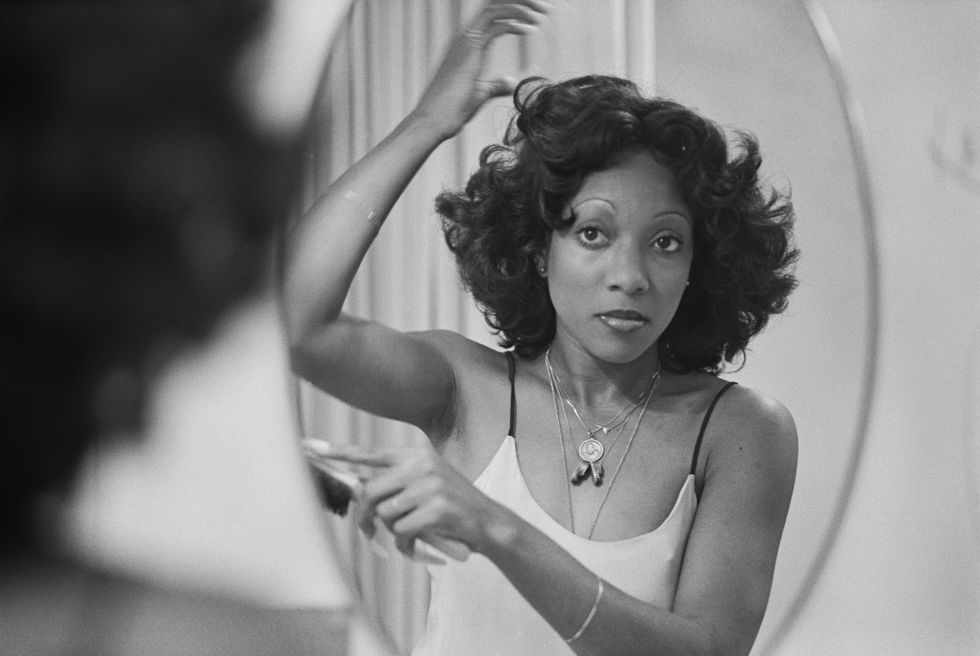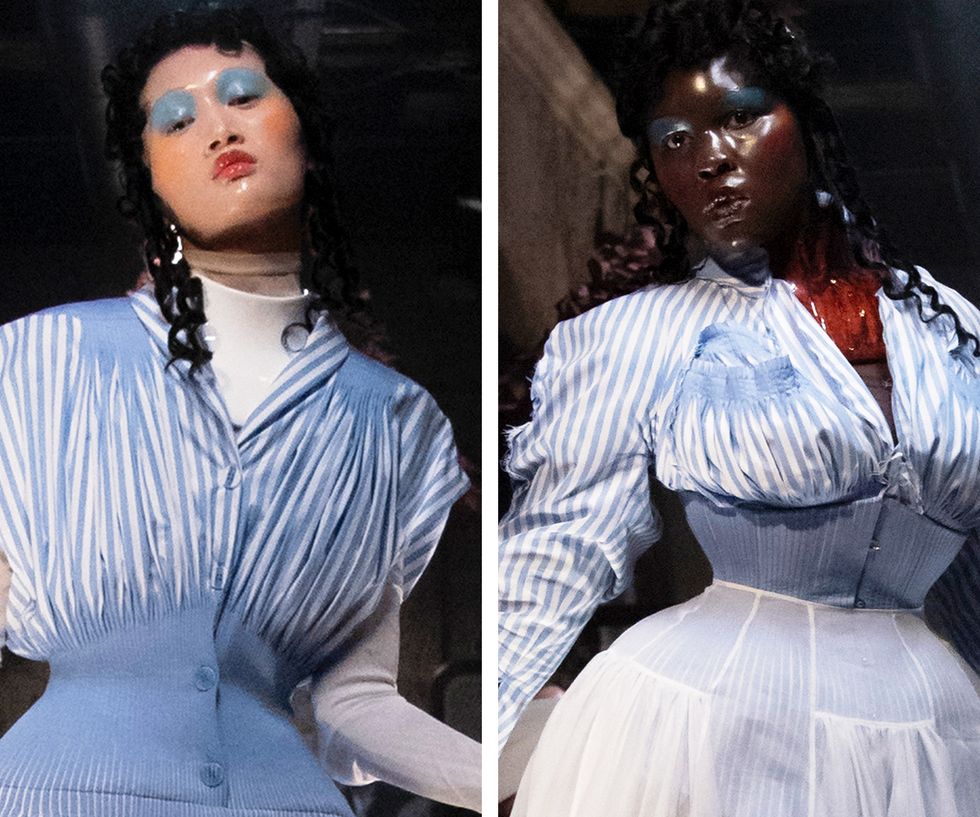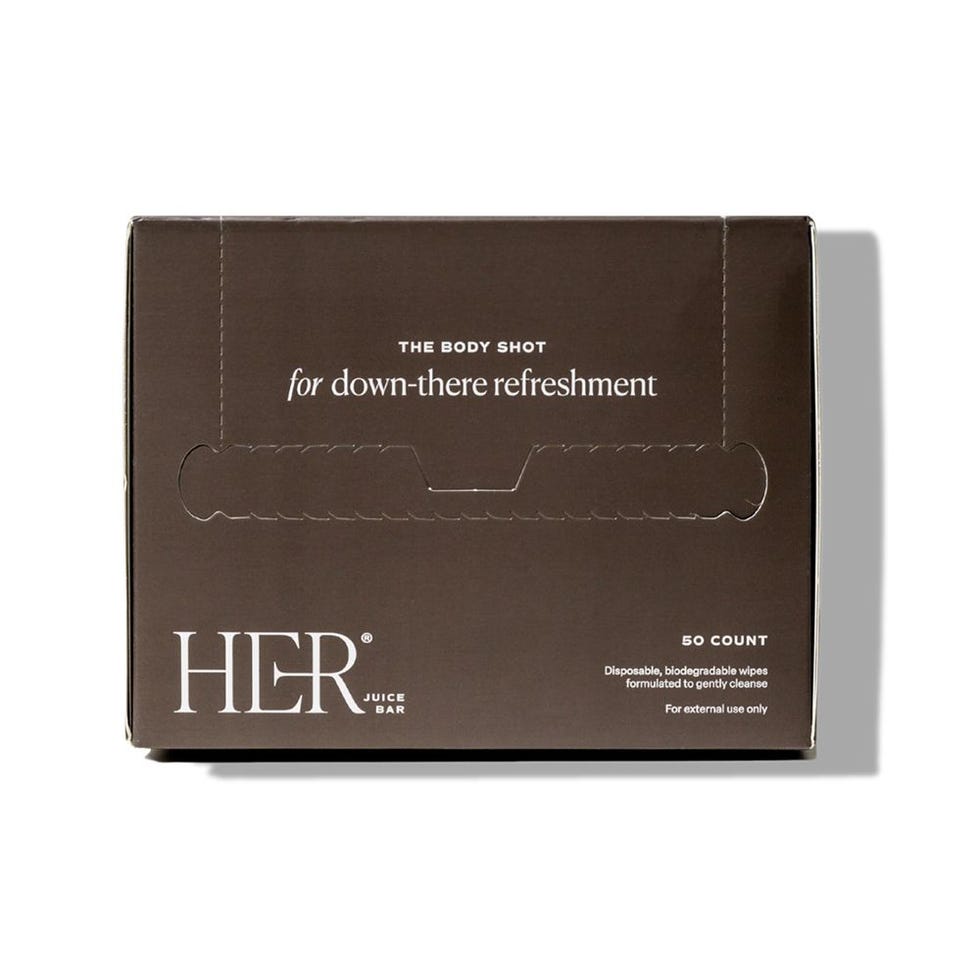When my mother’s water broke, she didn’t panic, nor did she immediately head to the hospital. Instead, she sat at her vanity and began to carefully apply her Fashion Fair makeup (at the time, one of the few options available to Black women). For my mom, looking her best was not just a sense of pride or a form of self-expression, but an obligation in America. My mother is from Trinidad and Tobago—twin Caribbean islands where most of the demographic comprises individuals of Black, Indian, and Chinese descent. Her experience with white superiority and racism wasn’t absolved, but it does differ from my experience in the United States. Though colourism is strong in the Caribbean, when Trinidad liberated from England in 1962, they elected their first prime minister, a Black man named Eric Williams.
Upon immigrating to the United States—the same day that America landed on the moon—my mother was introduced to the nuances of racism and the complexities of Black beauty. In a time and place where wearing an afro competing to touch the sun was a revolutionary act, she was faced with a decision that permeates those of African descent and immigrants across the globe – to assimilate or not? For survival, my mother traded her soft, beautiful 4a curls for a relaxed, straight style that she often slicked into a tight bun for her 12 hour nursing shifts at Bronx Lebanon Hospital. Despite her two hour train commute each way, my mother would always ensure her hair and makeup were nicely done, even if that meant suffering scalp burns from relaxers and foregoing the luxury of hitting “snooze”. Despite her white nursing attire, patients mistook her for the janitor, not their caretaker. When she moved to Naples, Florida, and became the third Black nurse at Naples Community Hospital, several individuals refused to even allow her to care for them, despite the fact she was an award-winning nurse. “You always have to look the part,” she’d tell me under the heavy weight of expectations and racism fuelling the notion that Black people are less than human—our natural hair deemed barbaric vs beautiful as it grows toward the sky.

Michael Ochs Archives//Getty Images
Fast forward to 2024, and Black beauty, while more celebrated, is still under attack. Laws like the Crown Act strive to protect Black Americans from discrimination but still fall short because of institutional racism. Foundations and concealers are still not representative of the U.S. population. Yes, pigmented products can be used by all—application processes, depending on skin tone, may vary. A crucial part of allyship is decentring yourself and understanding that Western standards deeply affect product offerings and availability within the industry.
In 2020, George Floyd’s murder shone a spotlight on the indecencies toward Black people, trickling down to the beauty industry, highlighting its own inequalities. The roundups of “Black-owned brands to support” ran rampant across publications, the 15% Pledge was born. Nevertheless, I find there’s a disconnect when it comes to Black-owned beauty brands, largely that they are only for Black people. Washing your hair, putting on your makeup, and a solid skincare routine isn’t a segregated experience. So why do we often segregate Black-owned products? Urban Hydration’s algae face wash will work just as well on your skin as it does mine; as seen during the Maison Margiela show, Pat McGrath Labs makes everyone look like art. Black-owned brands carry an additional responsibility that white-owned brands don’t. That responsibility is reflected in creating space in an environment that largely ignores Blackness. This shows up in marketing campaigns and shade offerings, but at the end of the day, they are making products for human beings.
- Advertisement - scroll to continue -

LAUNCHMETRICS SPOTLIGHT
Maison Margiela Haute Couture FW24
As Black History Month comes to a close, I encourage allies to the Black community to shop Black and make a Black-owned product a staple in your beauty routine. If you don’t know where to start, keep reading. Ahead are several of my current favorite Black-owned products that are in my rotation. Remember that support is continuous and allyship is a verb.



